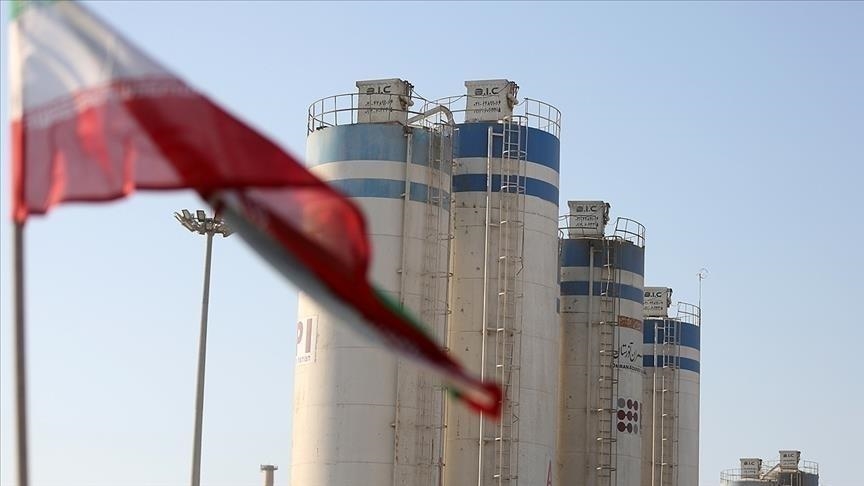EXPLAINER – Fordo: Key Iranian nuclear site in Israeli crosshairs
The Fordo nuclear facility is Iran’s most heavily fortified uranium enrichment facility and an increasingly high-priority target for Israeli attacks

- Reports suggest Fordo is a major reason why Israel wants the US to get involved, as only Washington has the powerful ‘bunker buster’ bomb capable of penetrating the underground site
ISTANBUL
Concerns are growing that potential US intervention in Israel’s ongoing strikes against Iran could focus on attacking Fordo, Tehran’s most heavily fortified uranium enrichment facility.
Multiple reports suggest that Fordo is a key reason Israel seeks US involvement in its campaign, as only Washington possesses the powerful “bunker buster” bomb capable of penetrating the site’s deep underground tunnels.
The Fordo facility, located within mountainous terrain near the city of Qom, is buried 80 to 100 meters underground and houses roughly 3,000 centrifuges enriching uranium up to 60% purity.
While Israel has already targeted Fordo in its ongoing strikes, the International Atomic Energy Agency (IAEA) has reported no significant damage yet. However, senior Israeli officials insist they “will not end” their attacks without affecting the critical facility.
What is the Fordo facility?
Fordo is a heavily fortified underground uranium enrichment complex.
Built inside a network of tunnels beneath mountains, the facility became operational in 2009 after construction began in 2007, according to reports. Initially undisclosed, its existence was revealed by Iran in 2009, heightening international scrutiny.
Situated approximately 32 kilometers (20 miles) northeast of Qom, the site occupies a former military base reportedly belonging to Iran’s Islamic Revolutionary Guard Corps (IRGC).
Fordo’s intricate tunnels, constructed deep underground, were designed explicitly to protect it from aerial attacks.
Why is Fordo significant?
Fordo is considered one of Iran’s most strategically important nuclear installations, given its fortified structure and sophisticated capabilities.
Monitored by the IAEA, the plant enriches uranium up to a purity level just below the threshold considered weapons-grade.
Under the 2015 Joint Comprehensive Plan of Action (JCPOA), Iran had agreed not to enrich uranium at Fordo. However, after the US withdrawal from the agreement in 2018, Tehran resumed enrichment operations there.
Iran maintains that its nuclear activities are peaceful, asserting its right to uranium enrichment under the Treaty on the Non-Proliferation of Nuclear Weapons (NPT).
Israel and the US, however, allege that Fordo could serve as a covert nuclear weapons facility – a claim Iran categorically denies.
Can Israel destroy Fordo?
As recent Israeli attacks caused no major damage, experts and analysts widely believe that only a particular deep-penetration munition, or “bunker buster,” can meaningfully damage or destroy such facilities.
The US is the sole country that has the powerful GBU-57 Massive Ordnance Penetrator, a 30,000-pound (13,600-kilogram) precision-guided bomb designed explicitly for destroying deeply buried targets.
Marina Miron, a researcher at the War Studies Department of King’s College London, suggested US involvement may not necessarily mean direct military strikes using the GBU-57 bombs.
“It can be logistical, it can be intelligence sharing, or even missile transfers – minus the GBU-57,” she told Anadolu.
Miron emphasized that the complexity and internal layout of the facility remain uncertain, making total destruction difficult: “We know that North Korea helped to build those tunnels in that facility, and they’re quite good at that. Russians as well to a certain extent, so it’s very well protected.”
Consequences and radiation risks
To date, Israeli attacks on Fordo have caused only minimal damage, with no radiation leaks reported by either Iranian authorities or the IAEA.
Still, the potential consequences of a major strike are unclear, and Miron emphasized the risk of lingering environmental and health concerns, saying it remains to be seen if a significant attack could resemble another Chernobyl or not.
“I believe an environmental risk remains. Studies conducted after Iraq showed that certain weapons significantly impacted civilian health over the long term, highlighting potential risks here as well,” she said.
For now, the US remains tight-lipped about its plans for Iran – most importantly on whether it will support Israeli attacks on Fordo.
Speaking to reporters at the Oval Office on Wednesday, US President Donald Trump said a “hostile country” having a nuclear weapon is “just not a threat you can have.”
Pressed on potential US involvement in Iran, he gave a cryptic warning: “I may do it. I may not do it.”
Anadolu Agency website contains only a portion of the news stories offered to subscribers in the AA News Broadcasting System (HAS), and in summarized form. Please contact us for subscription options.







